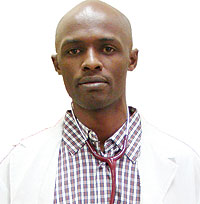What can delay or expedite wound healing
Our body is covered by an elastic skin that can be damaged or torn. The body has an automatic mechanism of repair for the damage.

Dr.Joseph Kamugisha
